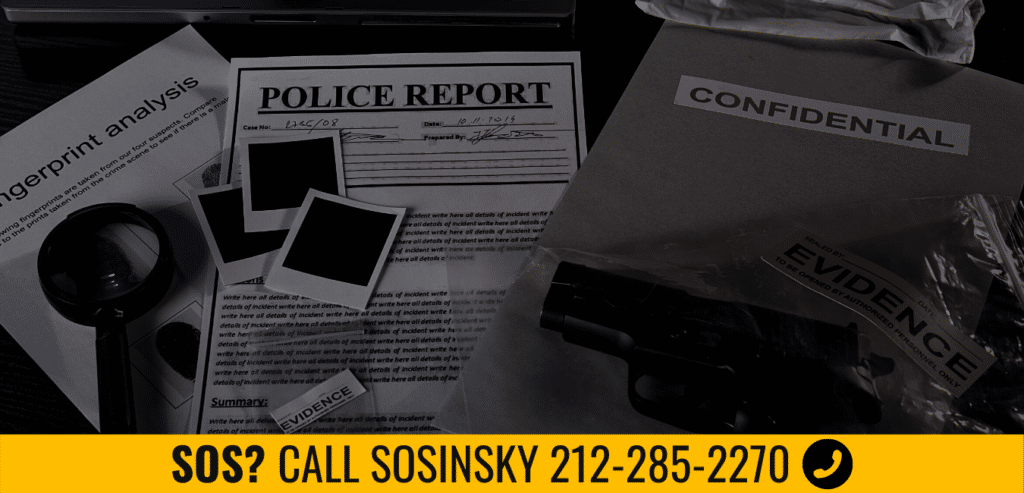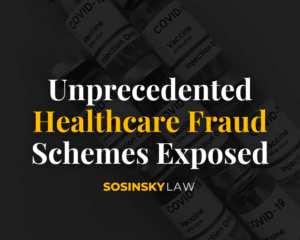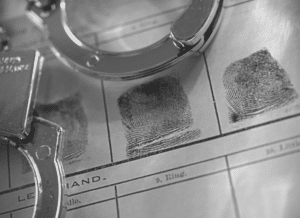NYC Murder Lawyer
Accomplished Homicide Lawyer in New York City
Of all the crimes on the books, a homicide charge accusing one of intentionally, or even recklessly or through criminal negligence, causing the death of another person, is the most serious accusation the state can make. Murder and manslaughter cases are also those in which the most seasoned police investigators, forensic examiners, and homicide prosecutors are likely to be involved. And the stakes in murder and manslaughter trials could not be higher — a decades-long or even life sentence will be on the line. If you or a loved one is under investigation in a homicide case or has been charged with murder or manslaughter, you will want to have the very best NYC murder lawyer on your side. That means someone who has done battle with top homicide prosecutors and comes out victorious. Someone who will relentlessly investigate the charges, retain the most respected forensic scientists to counter the state’s evidence and tirelessly work to win back your freedom.
For more than 30 years, NYC homicide lawyer Fred Sosinsky has been successfully defending those charged with murder, manslaughter, and criminally negligent homicide in the City of New York. He has secured the acquittals of many of his clients at trial, has had indicted intentional murder cases dismissed due to dogged and persistent investigation and litigation, and has worked out very favorable plea deals often involving not a day in jail in those cases where a murder trial is not the best solution. He has also worked to prevent homicide charges from being brought when he is retained early enough in a homicide investigation to affect its trajectory. Notably, Fred is one of a small handful of New York homicide lawyers in the last 25 years who has actually won a “not guilty by reason of insanity” verdict to brutal murder charges. Whether you find yourself falsely accused of a drag-racing death, a senseless shooting, a heat of passion stabbing, a barroom brawl ending in unfortunate death, or any other homicide charge, Fred Sosinsky has probably represented someone in similar circumstances and done quite well by them.
Types of Murder Charges in New York
New York has a number of homicide offenses that may apply to cases in which a person unlawfully causes the death of another person. For the most part, the severity of the charge is dependent upon the intention of the accused and the circumstances under which death is caused. But it may also be dependent, as may be seen, on the status of the victim of the homicide. Contrary to popular belief, in New York to be convicted of murder, a person need not have planned to carry out the killing. There is no premeditation requirement. The law focuses only on the state of mind of the accused at the moment of the homicide. In homicide cases stemming from motor vehicle accidents, most often the charge is predicated on the intoxicated state of the driver. Of course, there are viable defenses to each of these homicide charges which NYC murder lawyer Fred Sosinsky can skillfully employ in your case as he has for countless other clients.

Criminally Negligent Homicide
Criminally Negligent Homicide is a Class E felony punishable by up to four years in state prison. A person may be charged with this offense when he or she with “criminal negligence” causes the death of another person.
What does it mean to cause death with criminal negligence? In New York, the law says that a person acts with criminal negligence when he or she fails to recognize a substantial and unjustifiable risk that their actions may result in the death of another person. The law also instructs that the risk of death must be of such nature and degree that a failure to perceive this risk is a major deviation from the standards that a reasonable person would follow under the circumstances. Often, it is not easy to see what transforms a civil act of negligence, or lack of due care — the stuff of civil lawsuits — from one which the law may punish as criminally negligent. New York City homicide lawyer Fred Sosinsky has often defended such cases by arguing that the death in question was caused not by an act which the criminal law should punish but rather as a tragic accident, one in which a momentary lapse in attention or judgment rather than a criminal mindset prevailed.
Aggravated Criminally Negligent Homicide
Aggravated Criminally Negligent Homicide is a Class C felony punishable by up to fifteen years in state prison. A person may be charged with this offense when he or she with “criminal negligence” causes the death of a police or peace officer performing their official duties and the accused knew or should have known that the other person was a police or peace officer.
This is an example of heightened potential punishment in a homicide prosecution being based upon the status of the person killed — here, that is a police officer. That status elevates what would be a Class E felony to a Class C felony.
Manslaughter in the Second Degree
Manslaughter in the Second Degree is a Class C felony punishable by up to fifteen years in state prison. A person may be charged with this offense when he or she “recklessly” causes the death of another person or intentionally causes or assists another person to commit suicide.
New York law defines a person as having acted “recklessly” with respect to causing the death of another when he or she engages in conduct that creates or contributes to a substantial and unjustifiable risk of death to another person while he or she is aware of and consciously disregards that risk of death and when the risk is of such nature and degree that it that disregard of it constitutes a gross deviation from the standard of conduct that a reasonable person would observe in the situation.
The difference between Second Degree Manslaughter and Criminally Negligent Homicide is that in the case of the former, the evidence shows that the accused is aware of the risk of death and consciously disregards the risk whereas, with the latter, the accused fails to appreciate the risk that is presented by their actions.
The law also provides that a person acts recklessly with regard to another’s death where a person fails to appreciate the unreasonable and unjustifiable risk of death solely due to their own voluntary intoxication. Thus, it will usually not be a defense to reckless manslaughter that the accused was too drunk or impaired by drugs to have realized the actual risk of death involved in dangerous activity.
Aggravated Manslaughter in the Second Degree
Aggravated Manslaughter in the Second Degree is a Class C felony punishable by up to fifteen years in state prison. A person may be charged with this offense when he or she recklessly causes the death of a police or peace officer performing their official duties and the person knew or should have known that the other person was a police or peace officer.
This is another example of increased punishment for the same crime based upon the law enforcement status of the victim,
Manslaughter in the First Degree
Manslaughter in the First Degree is a Class B violent felony punishable by up to 25 years in state prison with a mandatory minimum sentence of five years in prison. A person may be charged with this offense when he or she intends to cause serious physical injury to another person and causes the death of that person or a third person, or when he or she intentionally causes the death of another person or a third person while “acting under the influence of extreme emotional disturbance” as that term is defined under the law, or if the accused is at least 18 years of age, intending to cause physical injury to a person less than 11 years old, he or she engages in conduct creating a grave risk of serious physical injury to the child and thereby causes the death of the child. With one of the most serious charges you could possibly face, it is imperative you hire the absolute best NYC murder lawyer to represent you during trial.
Aggravated Manslaughter in the First Degree
Aggravated Manslaughter in the First Degree is a Class B violent felony punishable by up to 25 years in state prison and a minimum sentence of five years in prison. A person may be charged with this offense when with intent to cause serious physical injury to a police or peace officer who was performing his or her official duties and the accused knew or should have known that the person was a police or peace officer, he or she causes the death of a police or peace officer, or he or she intentionally causes the death of a police or peace officer while “acting under the influence of extreme emotional disturbance” as that term is defined under the law.
Murder in the Second Degree
Murder in the Second Degree is a Class B violent felony punishable by up to 25 years to life in prison and a mandatory minimum sentence of fifteen (15) years to life in prison. A person may be charged with this offense if he or she intentionally causes the death of another person, or during the commission of certain other violent crimes or flight therefrom, he or she unintentionally causes the death of another person who is not a participant in the other crimes, or under circumstances showing that a person had “depraved indifference to human life” he or she recklessly engages in actions that create a grave risk of death and thereby causes the death of another. The law also makes it murder in the second degree for a person at least 18 years of age to cause the death of a person under the age of 11 through reckless conduct evincing “depraved indifference to human life” and to intentionally cause the death of a person under the age of 11 while committing certain sexual offenses against them.
As is evident, one can be charged and convicted of second degree murder — and be sent to prison potentially for the rest of their life — under a number of circumstances where the victim’s death was not necessarily intended. This includes so-called “felony murder” cases where the accused was in the midst of committing another violent crime such as an armed robbery or residential burglary when a victim dies no matter the cause, and “depraved indifference” crimes where the actions of the accused demonstrate a profoundly disturbing lack of concern for the safety of others such as firing a gun toward a crowded street corner. The law in New York treats such unintentional deaths as severely as deliberate murders due to the heinous nature of the underlying conduct that causes even accidental death. The theory underlying this determination is that those who would engage in the underlying violent criminal activity assume the risk that a person could die as a consequence of their actions.
For second degree murder cases premised upon intentional murder, New York law provides as an “affirmative defense” to the charge those situations in which a person is said to have killed the victim as a result of an “extreme emotional disturbance.” Thus, if the accused can show that he or she killed while under the influence of an extreme emotional disturbance for which there was a reasonable explanation or excuse, which reasonableness is to be determined from the viewpoint of a person in the accused’s situation under the circumstances as he or she believed them to be, the jury may find him or her not guilty of murder in the second degree but, if it is charged, guilty of some lesser crime including manslaughter in the first degree.
For second degree murder cases charged as “felony murders,” the law provides for an “affirmative defense” if the accused can show that he or she did not commit or cause to be committed the act that caused the death of a non-participant, was not armed with a deadly weapon or dangerous instrument, had no reasonable ground to believe any other participant was armed with such weapon or instrument and had no reasonable ground to believe that any other participant would engage in conduct likely to cause death or serious physical injury. If successful, this defense would result in conviction only for the underlying serious violent crime.
Murder in the First Degree
Murder in the First Degree is a Class A-I violent felony punishable by life in prison without the possibility of parole. A person may be charged with this federal crime when he or she intentionally causes the death of another person or a third person and: knew or reasonably should have known that the person was a judge or a police or peace officer, firefighter, first responder or corrections officer performing his or her official duties, or the intended victim was a person or family member of a person who was a witness to a crime and the killing was intended to either prevent the testimony or as retribution for past testimony, or the murder took place during the commission of certain violent felonies, the killing was a murder-for-hire, or the accused was serving a life sentence, or killed more than one person during the same criminal act, or two or more additional persons within a two year period in the same manner, or had previously been convicted of murder, or tortured the victim prior to death, or committed the murder as “an act of terrorism” as that is defined under the law.
As was the case for charges of Murder in the Second Degree, the law provides for an “affirmative defense” reducing a first degree murder charge to Manslaughter in the First Degree where the accused can demonstrate that he or she acted as a consequence of an “extreme emotional disturbance.”
Aggravated Murder in the First Degree
Aggravated Murder in the First Degree is a Class A-I felony punishable by life in state prison without the possibility of parole. A person may be charged with this offense when he or she being over the age of 18, intentionally causes the death of another person or a third person and knew or reasonably should have known that the person was a police or peace officer, firefighter, first responder or corrections officer, performing his or her official duties, or intentionally killed a person less than 14 years old and tortured the victim prior to death.
Homicide Charges Stemming from Vehicle Accidents
In addition to traditional homicide charges, where there has been a deadly motor vehicle accident and some aggravating factor, usually the intoxication of the vehicle’s operator, is also present, there are other homicide charges that may be brought.
Vehicular Manslaughter in the Second Degree
Vehicular Manslaughter in the Second Degree is a Class D felony punishable by up to seven years in state prison. A person may be charged with this offense when he or she causes the death of another person while violating certain vehicle and traffic laws or when operating the vehicle while intoxicated or impaired by alcohol or drugs in a manner that causes the death of the other person. These types of crimes can also be paired with others depending on the circumstances. For example, gun possession charges are often charges that are added to a murder charge if applicable.
Significantly, this law provides a “rebuttable presumption” that a person who is proven to have been driving a vehicle while intoxicated or impaired caused the death of the other person(s) involved in the accident. This means that a jury can but need not necessarily find an accused guilty of this crime if there is proof of a DWI offense and an accident alone.
Vehicular Manslaughter in the First Degree
Vehicular Manslaughter in the First Degree is a Class C felony punishable by up to fifteen years in state prison. A person may be charged with this offense when he or she causes the death of another person while violating certain vehicle and traffic laws or when operating the vehicle while severely intoxicated or impaired by alcohol or drugs and while their license or privileges to operate a vehicle was suspended or revoked by NY or a sister state based on a DWI conviction or refusal to take a chemical test, or has previously have been convicted of a DWI offense, or causes the death of more than one person or causes the death of a child under the age of 16 who was a passenger in their vehicle.
The blood alcohol measure of intoxication which causes an upgrade in charges from second degree to first degree vehicular manslaughter is a claimed reading of .18 of one percent.
Aggravated Vehicular Homicide
Aggravated Vehicular Homicide is a Class B felony punishable by up to 25 years in state prison and a mandatory minimum sentence of five years in prison. A person may be charged with this offense when he or she engages in reckless driving as that term is defined in the vehicle and traffic law, commits Vehicular Manslaughter in the Second Degree, and either commits that crime while severely intoxicated or impaired by drugs or alcohol, while their license or privilege to operate a vehicle was suspended or revoked by NY or a sister state based on a DWI conviction or refusal to take a chemical test, or has previously have been convicted of a DWI offense, or causes the death of more than one person, or causes the death of one person and serious physical injury to another, or causes the death of a child under the age of 16 who was a passenger in their vehicle.
An aggravated vehicular homicide requires evidence of “reckless driving” which vehicular manslaughter charges do not. An NYC hit and run lawyer may also be able to provide valuable insight and guidance on how to approach your defense for this type of homicide charge in New York.

NYC Homicide Lawyer With A Successful Defense Record
While the stakes are always higher in homicide cases, it is very possible that, in the right hands of a veteran NYC murder lawyer, you may have a winning defense to such charges. Defenses to murder and manslaughter charges in New York include the following:
Self-Defense or Justification
Under our laws, a person is permitted to use deadly physical force against another person in order to defend him or herself against what is reasonably perceived to be the imminent use of such force against him or her provided that they were not the initial aggressor and could not safely flee from the scene. In addition, you are permitted to use such deadly force against an intruder into your home or place of business if reasonably necessary to prevent the commission of a felony there and may use such force in defense of third persons if reasonably necessary. Thus, many a murder or manslaughter case may be won with a valid self-defense claim.
Lack of Intent
In a murder case, the burden of proving that it was the accused’s intention to cause the death of another is always on the prosecutor. By attacking the evidence and poking holes in government testimony, it may be shown that the accused lacked a specific intention to kill the person who died. Sometimes this may result in a reduction of charges from intentional murder all the way down to negligent homicide. For example, where during an altercation, the accused landed a single punch to the head of the decedent causing him to fall, strike his head on the ground and eventually die due to brain injury, the accused may have a compelling defense to murder charges based on a lack of proof of intent to kill. Where a chokehold is applied to a decedent to restrain or to calm them down and an unfortunate death results, a persuasive defense built on lack of intent may be built. Fred Sosinsky works with the very best forensic pathologists in every homicide prosecution to ensure that no stone is left uncovered when it comes to the causes and manner of death.
Psychiatric Defenses
Under the law, if an accused can show that although they committed what would otherwise be a murder, due to a severe mental illness or defect, they lacked the capacity to know or understand what they were doing or that it was wrong to do so, there may be a successful insanity defense presented. There have been many lawyers who have tried the insanity defense for their clients and were unsuccessful in doing so. There is a small number who have actually won insanity verdicts in New York over the last 25 years. NYC murder defense lawyer Fred Sosinsky has won a verdict of not responsible by reason of insanity in a closely-watched murder trial in Manhattan and had a hung jury in the defense’s favor in another. He has worked with some of the most highly regarded forensic psychiatrists and psychologists in having his clients evaluated and using these experts to negotiate appropriate outcomes where a trial is not the solution. In yet other cases, a defense of extreme emotional disturbance, or heat of passion, may be the right choice for if established, a not guilty of murder verdict may be reached and less serious charges considered.
Lack of Intoxication from Alcohol or Drugs
In those homicide cases involving motor vehicle crashes, it is critical that the defense retains its own team of experts to challenge the intoxication of the driver evidence and to explore and if present, offer alternative causes for the accident.
Challenges to DNA and Other Forensics
Given the seriousness of a homicide charge, there is nary a case brought that does not rely upon, to one degree or another, forensic evidence. But whether those forensics include DNA analysis, cell tower reports, or firearms ballistics evidence, no forensic evidence is beyond legal challenge. Indeed, as we are learning, far too many of the so-called forensic sciences and conclusions reached by experts have been shown to have been wrongly accepted by courts and juries. Fred Sosinsky will work with expert assistance to expose all weaknesses and failings in the prosecutions’ forensic evidence.
Contact The Top NYC Murder Lawyer Today
When charged with a homicide, you need a successful and experienced NYC murder lawyer ready to bring the fight to the courtroom. The seriousness of these charges need not be restated, however, the need for an attorney who has successfully defended against homicide charges in New York can not be any more important. Call Fred Sosinsky to discuss your defense charges today.
SOS? CONTACT SOSINSKY
NYC Criminal Defense

Unprecedented Healthcare Fraud Schemes Exposed
Unprecedented Healthcare Fraud Schemes Exposed: A Glimpse into the Recent DOJ Crackdown In a groundbreaking move, the Department of Justice has unveiled criminal charges against

Conspiracy Charges in NY
NYC Conspiracy Crime Lawyer Conspiracy charges in NY are valid when two or more parties make a clear agreement to engage in criminal activity. Under
